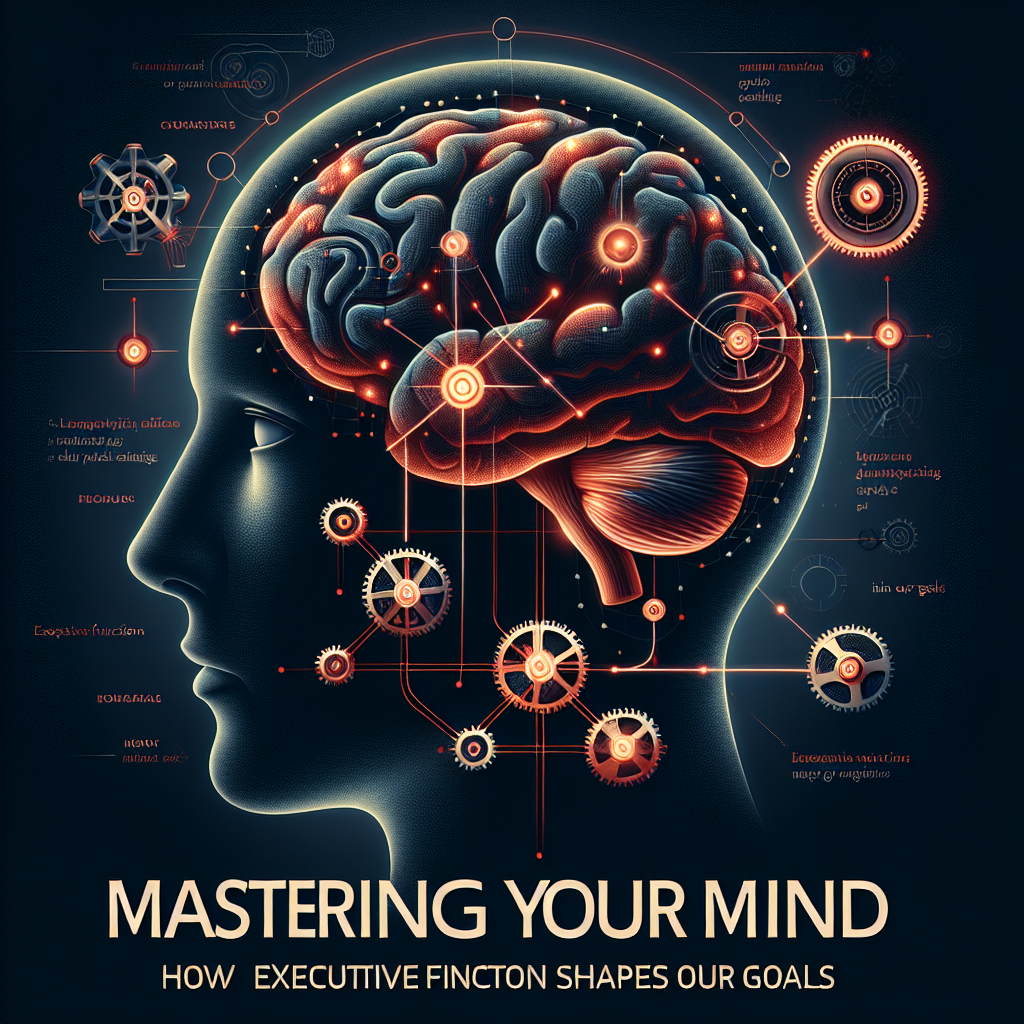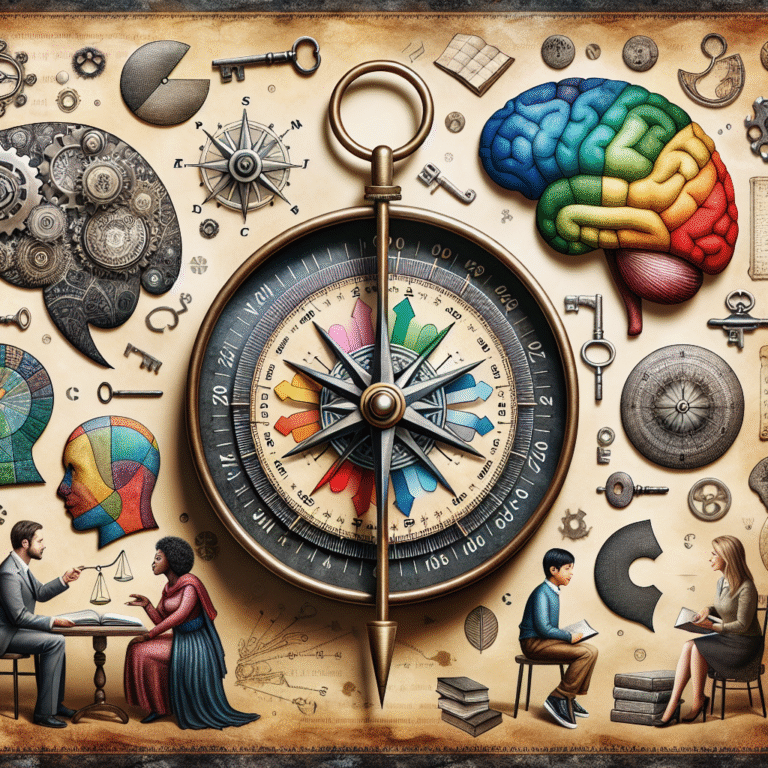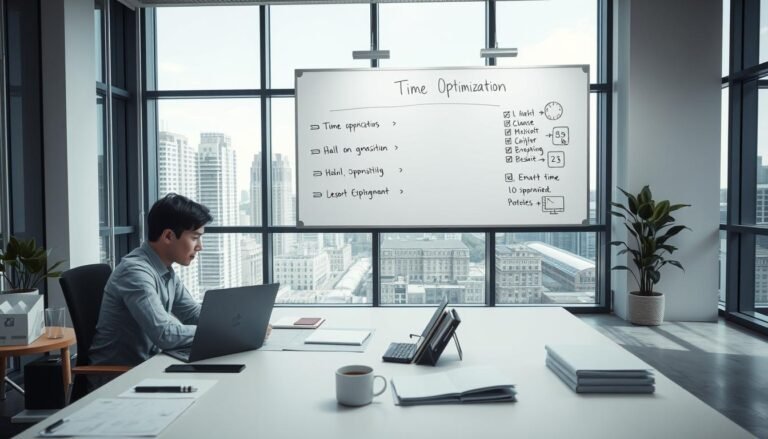
Introduction
Imagine standing at the base of a towering mountain, looking up at the summit that represents your biggest aspirations. The journey to reach that peak is not just about determination; it heavily relies on the invisible mechanisms of our mind—our executive functions. These mental skills are the driving force behind how we set, pursue, and achieve our goals. In this article, we’ll delve deep into "Mastering Your Mind: How Executive Function Shapes Our Goals," exploring how honing these skills can catalyze profound transformations in your life.
As we progress through this comprehensive guide, you’ll uncover actionable insights and captivating real-life examples that illustrate the significance of mastering your executive function to conquer your personal and professional ambitions. Let’s embark on this enlightening journey together!
The Foundation of Executive Function
What is Executive Function?
Executive function refers to a collection of cognitive processes that facilitate our ability to manage thoughts, emotions, and actions effectively. These processes enable us to plan, focus attention, remember instructions, and juggle multiple tasks successfully. At the heart of executive function lies three core components:
Working Memory: This is our capacity to hold and manipulate information in our minds temporarily. For instance, while planning a project, our working memory helps us keep track of all necessary steps and deadlines.
Inhibition: This refers to our ability to control impulses and resist distractions. Imagine you’re writing a report when a notification pops up on your phone. Inhibition allows you to resist the urge to check your device and stay focused on your task.
- Cognitive Flexibility: This ability enables us to adapt our thinking in response to changing demands. Cognitive flexibility is crucial when we encounter unexpected challenges, allowing us to pivot and find new solutions.
The Importance of Executive Function in Goal Setting
Executive function plays a pivotal role in how we define and pursue our goals. For instance, individuals lacking strong executive skills may struggle with procrastination, become easily overwhelmed, or find it challenging to create actionable plans. Conversely, those who excel in executive function are often more adept at setting and achieving their goals, demonstrating an essential relationship between mastering your mind and realizing your aspirations.
| Executive Function Component | Impact on Goal Setting |
|---|---|
| Working Memory | Keeps track of tasks and deadlines |
| Inhibition | Aids in staying focused |
| Cognitive Flexibility | Facilitates adaptation |
Real-World Applications
Case Study 1: The Productivity Paradigm
Consider the example of Sarah, a marketing executive whose career was stagnating because of her inability to manage time effectively. She often found herself missing deadlines, switching between tasks haphazardly, and feeling overwhelmed by her workload. Recognizing the impact of her executive function, Sarah decided to take action.
Analysis
By implementing time-management tools and prioritizing her tasks, Sarah retrained her working memory and enhanced her inhibition skills. Utilizing techniques like the Pomodoro Technique—working for 25 minutes and then taking a 5-minute break—she found that she could focus better on her tasks without the continuous pull of distractions. Eventually, Sarah not only met her deadlines but was also promoted for her initiative and productivity.
Case Study 2: Academic Success
Now, let’s look at Jamal, a high school student whose grades were slipping due to his difficulty in sustaining attention during classes and homework. His parents noticed that his working memory was limited, as he struggled to keep up with notes and assignments.
Analysis
With the help of a school counselor, Jamal began using graphic organizers to visualize his ideas and notes. This tool enhanced his working memory and made it easier for him to organize his thoughts for essays and exams. As a result, his grades improved remarkably, illustrating how mastering executive function can lead to academic success and improved goal attainment.
Techniques for Mastering Executive Function
Mindfulness Meditation
One effective way to enhance your executive function skills is through mindfulness meditation. This practice fosters self-awareness and self-regulation, strengthening your ability to focus and manage your impulses.
Action Steps:
- Set aside 10 minutes each day to practice mindfulness. Focus on your breath, gently bringing your mind back whenever it wanders.
- Gradually increase your practice time to boost your cognitive flexibility and emotional regulation.
Goal-Setting Frameworks
Using frameworks such as SMART goals (Specific, Measurable, Achievable, Relevant, Time-bound) can also help you leverage your executive function. By establishing clear, structured goals, you efficiently activate your working memory.
Action Steps:
- Write down a specific goal you want to achieve.
- Break it down using the SMART criteria, ensuring each aspect is thought out clearly.
- Review the goal regularly, adjusting your plan as necessary to maintain focus and direction.
| SMART Criteria | Description |
|---|---|
| Specific | Define the goal clearly |
| Measurable | Determine how to measure progress |
| Achievable | Set a realistic target |
| Relevant | Ensure it aligns with broader goals |
| Time-bound | Set a deadline |
Cognitive Behavioral Techniques
Cognitive Behavioral Therapy (CBT) offers practical strategies to enhance executive function. By identifying negative thought patterns, individuals can learn to reframe them, fostering better control over their actions.
Action Steps:
- Keep a journal to track your thoughts and behaviors.
- Identify patterns that lead to procrastination or distraction.
- Practice reframing these thoughts to promote a more productive mindset.
Overcoming Barriers to Executive Function
Recognizing Obstacles
Though enhancing your executive function is crucial, there can be barriers that hinder progress. Common obstacles include environmental distractions, mental health challenges, and even lack of structured support.
Strategies to Overcome Barriers:
- Environmental Control: Identify distractions in your immediate surroundings and eliminate them (e.g., declutter your workspace).
- Support Systems: Seek mentorship or accountability partners who can guide and motivate you toward your goals.
- Self-Care: Maintain a healthy lifestyle with proper nutrition, exercise, and sufficient sleep to optimize cognitive functions.
The Relationship Between Executive Function and Emotional Intelligence
Emotional Self-Regulation
Mastering your mind not only improves your goal-setting abilities but also enhances your emotional intelligence. Better self-regulation of your emotions empowers better decision-making and interpersonal relationships, all crucial elements for personal and professional success.
Building Empathy and Understanding
An awareness of your own emotional landscape facilitates empathy towards others, improving collaborative efforts toward shared goals. This two-way relationship highlights another layer to "Mastering Your Mind: How Executive Function Shapes Our Goals."
Conclusion
In conclusion, mastering your mind through executive function is an indispensable journey toward achieving your goals. By understanding and implementing strategies to enhance your working memory, inhibition, and cognitive flexibility, you position yourself for ultimate success. Whether you’re an aspiring professional, a student aiming for academic excellence, or an individual seeking personal growth, these skills are vital tools in your arsenal.
Remember, the journey may be challenging, but with persistence and the right strategies, you can navigate the complexities of goal setting and achievement with resilience and clarity. Are you ready to embark on this transformative journey? Your future self will thank you!
FAQs
1. What are the main components of executive function?
The main components include working memory, inhibition, and cognitive flexibility, all crucial for effective goal setting and achievement.
2. How can I improve my executive function skills?
You can improve your skills through mindfulness practice, structured goal-setting frameworks, cognitive behavioral techniques, and cultivating emotional intelligence.
3. Can executive function be trained?
Yes, it can be trained through consistent practice and application of various techniques aimed at enhancing cognitive processes.
4. How does executive function relate to mental health?
Executive function plays a vital role in managing stress and emotions. Poor executive function can contribute to mental health issues, while improving these skills can foster better emotional regulation.
5. Is executive function the same for everyone?
No, executive function can differ widely among individuals due to factors like age, educational background, and environmental influences. However, with focused effort, anyone can improve their executive skills.
In embarking on the journey of "Mastering Your Mind: How Executive Function Shapes Our Goals," remember that progress, not perfection, is the key. Strive to take actionable steps today that will position you for success tomorrow!
















